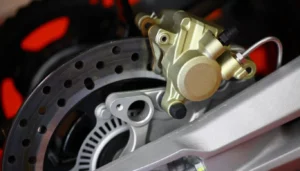Car keys are essential but often overlooked. They start our cars, lock them, and unlock some models’ built-in features. When a key works well, we forget how important it is. When it breaks, we realise its importance and are stranded or locked out.
Many have asked, “Why is my car key not working?” Several factors can cause this inconvenience. This article discusses mechanical and electronic car keys and their causes of failure. Understanding why a car key fails can help us avoid or resolve issues.
How Do Car Keys Work?
Mechanical keys, or metal car keys, have been used in cars for decades. This key’s cuts and grooves match the car lock’s wafers or pins. When the key is inserted and turned, these components align to operate the lock. These keys are easy to understand because they’re mechanical, but they can wear out or break.
Over the past few decades, mechanical car keys have been replaced by electronic ones. These modern keys have a battery-powered transponder chip and a mechanical part. When the key is inserted into the ignition, the car’s onboard computer signals the key. If the key’s transponder sends the right signal, the computer starts the car.
Transponders are vital to modern car keys. The word “transponder” combines “transmitter” and “responder”. This microchip in the key’s plastic head communicates with the engine control unit (ECU). Each transponder chip has a serial number that the ECU recognises. The ECU requests the transponder’s serial number when you turn the key. If the numbers match, the ECU starts the engine. The engine won’t start if they don’t.
Another automotive innovation is keyless entry, or key fobs. These remotes use radio frequency signals to lock and unlock doors and start vehicles. The car receives a coded signal from the key fob’s short-range transmitter. If the car recognises the code, it will unlock the doors or perform other functions. Signal interference and battery issues can also affect keyless entry systems.
8 Common Reasons Why Your Car Key Isn’t Working
Mechanical and electronic failures can cause car keys to malfunction. Accurately identifying the problem’s cause leads to solutions.
1. Physical Wear and Tear of Mechanical Keys
Mechanical keys work on a precise configuration of cuts and grooves. Over time and with frequent use, these specific configurations can wear down, making it impossible for the key to align the pins inside the lock correctly.
Solution: If your key shows signs of physical wear, like visibly worn-out edges or difficulty in turning the lock, you may need a replacement key. A professional locksmith can accurately replicate your worn-out key. To prevent wear and tear, try to avoid using excessive force when turning the key in the lock.
2. Incorrectly Cut Duplicate Keys
Creating a duplicate key involves an intricate process of accurately copying the original key’s unique cut. If the duplicate key is not cut correctly, it can’t align the lock’s pins or wafers properly, leading to a malfunction.
Solution: Always ensure that key duplication is done by professionals who have the required skills and precision tools. If your duplicate key isn’t working, get a new one cut by a reputable locksmith.
3. Dead Batteries in Electronic Keys
Electronic car keys or key fobs require a power source to function, usually a small battery. When the battery dies, the key can’t send the necessary signals to the car’s computer, making it ineffective.
Solution: Most key batteries need replacement every 3-4 years, but check the manufacturer’s guidance. Regularly replacing the battery in your electronic key will prevent sudden failures.
4. Damaged Transponders
Transponders, found in most modern keys, can get damaged due to impacts or exposure to harsh elements. When damaged, the transponder can’t send its unique signal to the car’s computer, and the vehicle won’t start.
Solution: Handle your keys carefully to avoid damaging the transponder. If your transponder is damaged, you may need professional assistance from a locksmith or dealership to repair or replace it.
5. Faulty Locking Mechanisms
Sometimes, the problem isn’t the key but the lock. The internal mechanism of the lock could be broken or misaligned, making it impossible for the key to operate it.
Solution: If you suspect a lock issue, consult a professional locksmith or your car dealership. They can diagnose the problem and repair or replace the lock as necessary.
6. Obstruction in the Lock
Dust, debris, or small particles can get inside the lock, causing an obstruction. This can prevent the key from fully inserting or turning in the lock.
Solution: Regularly clean your car lock using a suitable lock lubricant or cleaner to prevent buildup. If the lock is severely obstructed, a professional cleaning might be necessary.
7. Signal Interference in Keyless Entry Systems
Keyless entry systems work on radio signals. Other devices or power lines in the vicinity can interfere with these signals, preventing the car from recognizing the key fob.
Solution: If your key fob isn’t working, try moving away from potential sources of interference. If the problem persists, you may need to consult a professional.
8. Damage to Key Fobs
Key fobs, despite being sturdier than traditional keys, can still get damaged due to overuse, impacts, or exposure to water.
Solution: Handle your key fob with care and avoid dropping it or exposing it to water. If your key fob is damaged, you may need to seek professional help to repair or replace it.
By understanding the reasons why car keys fail and applying the appropriate solutions, you can prevent or quickly resolve key-related issues, ensuring your car remains accessible and functional.
Professional Solutions to Non-Working Car Keys
Locksmiths can diagnose and repair mechanical keys and locks. They can accurately cut new keys, repair locks, and help you get into your car. They may offer key and lock maintenance advice.
Modern locksmiths know more than mechanical keys and locks. They also handle electronic keys. They replace batteries, reprogram transponder keys, and provide key fobs.
Car warranties cover many keys and fobs. Before seeking help, check your key’s coverage.
If the key is under warranty, dealers can usually replace it for free.
Dealerships are reliable but not always fast or cheap. They have brand-specific knowledge and parts.
If your key isn’t under warranty, dealership services can be expensive and take longer.
When and How to Fix Your Car Key
Replacing a dead electronic car key’s battery is easy. Unscrewing or prying open the key’s plastic casing, removing the battery, and replacing it is typical. Refer to the user manual or online guide to ensure proper execution.
Cleaning can fix a broken key or lock. A little lubricant can clean a mechanical key or lock’s interior. Wiping the contacts with rubbing alcohol can sometimes fix electronic keys.
Replace a worn mechanical key. Hardware stores and locksmiths often cut replacement keys. For an electronic or transponder key, you’ll likely need professional help.
How to Avoid Car Key Problems
Regular maintenance can extend the life of both mechanical and electronic car keys. This can include cleaning the key and lock regularly, replacing the battery before it dies, and avoiding unnecessary strain or impact on the key.
How you handle and store your keys can also impact their longevity. Avoid dropping your keys or subjecting them to harsh conditions. Try not to overload your keychain, as the extra weight can wear out the ignition switch over time.
It’s also important to know when to get a replacement key. If you notice your key is starting to wear down or your electronic key is behaving erratically, it may be time to consider getting a replacement.
Frequently Asked Questions
1. Why does my car key work intermittently?
A dying battery, faulty transponder, or ignition switch can cause intermittent car key problems.
2. Can a car key fail due to weather conditions?
High heat can damage electronic keys, while extreme cold can freeze mechanical locks.
3. How often should I replace my car key battery?
Most car key batteries last 3–4 years, but consult the manufacturer.
4. Can I repair my car key transponder?
Transponder repair requires a professional.
5. What signs indicate a broken car lock?
If your key turns slowly or doesn’t turn, your car lock may be broken.
Conclusion
Understanding car keys and their issues is crucial. Wear and tear, incorrect cutting, dead batteries, damaged transponders, and car locking mechanism issues can cause a car key to stop working.
Maintaining your keys and being prepared for issues can prevent unexpected problems. Regular maintenance, understanding your key’s limitations, and knowing when to get professional help can make car key experiences smoother.






